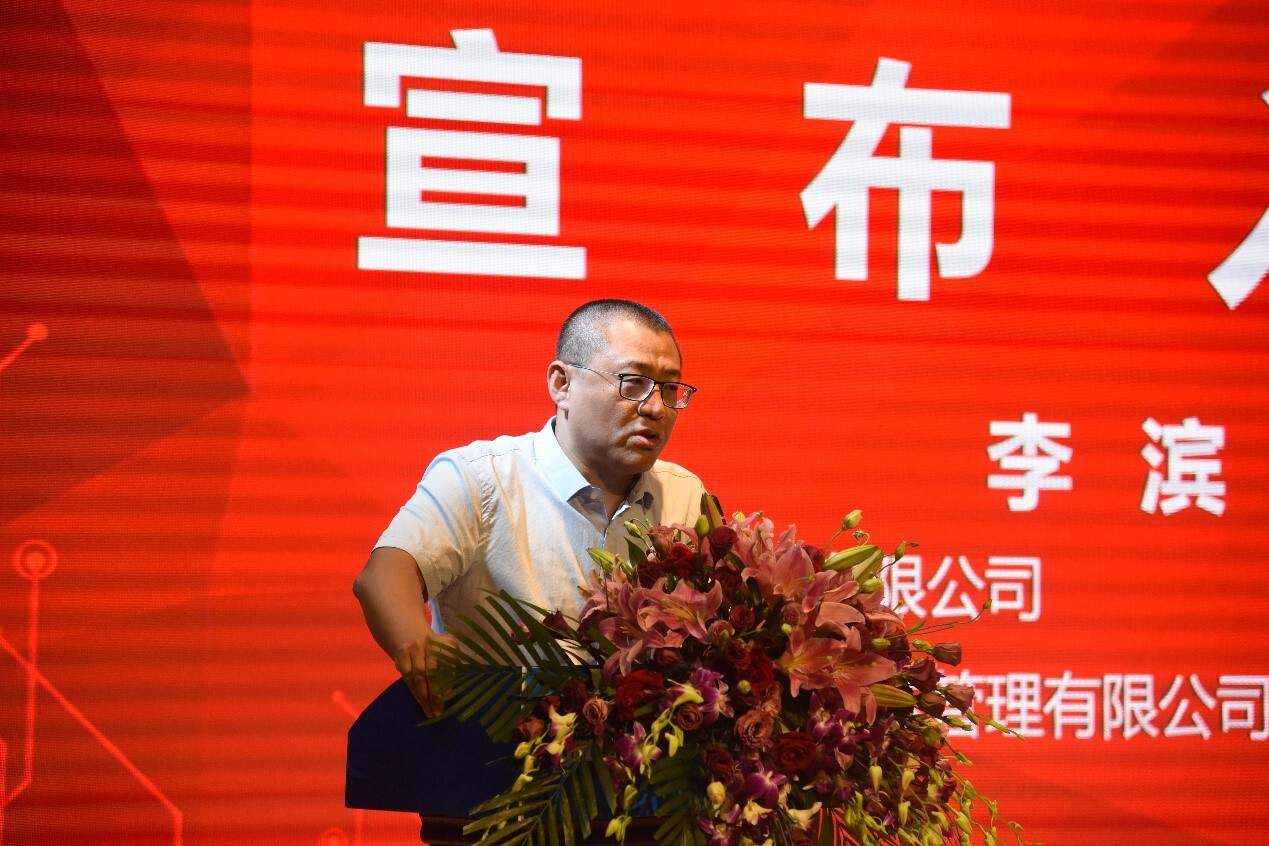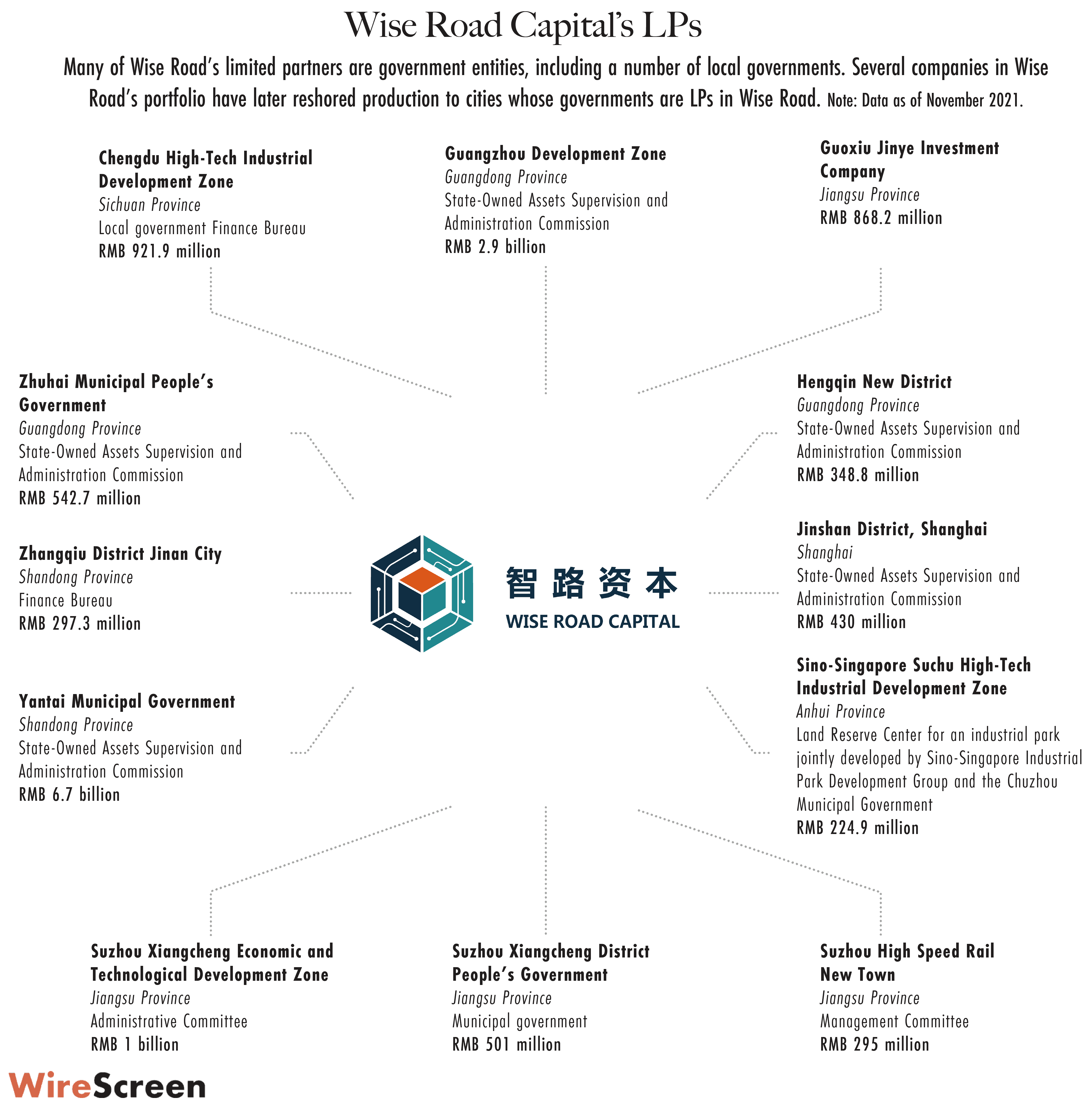
These are turbulent times for China’s top semiconductor firms and financiers. Corruption probes launched in recent weeks have ensnared senior executives at some of China’s largest chip funds and firms, including the head of China’s giant state-backed chip investment fund and the ex-chief of Tsinghua Unigroup, China’s one-time leading chipmaker.
Against this backdrop, Wise Road Capital looks like a new favorite in China’s chip investment space. The Beijing-based private equity firm recently won a competitive bidding war to bail out Unigroup, becoming a key shareholder in the financially embattled conglomerate. It’s also embarked on some headline-grabbing deals overseas that dovetail with the Chinese government’s industrial policy objectives.
Yet little is known about the background of Wise Road, which was founded just six years ago. Its secrecy, as well as the opacity with which it conducts its deals, is arousing suspicion in international national security circles.
This week, The Wire looks at Wise Road Capital: the people connected to it, its activities, and why the firm is drawing suspicion.
LEADERSHIP TEAM

Wise Road Capital was founded by Li Bin (who also goes by the name Brighten Li), an intensely private financier who rarely makes public appearances. Little is known about his background, except that he was born in 1970, graduated from Tsinghua University and was previously a senior vice president at SMIC, the state-backed chipmaker that was sanctioned by the U.S. government and placed on the Entity List in 2020.
In an environment where the influx of state money into the chip sector has emboldened some financiers to make huge investments, observers say that Li stands out for his shrewdness. “He seems to understand the financial side of the industry better and is viewed as a more serious player,” says Paul Triolo, senior vice president for China at Albright Stonebridge Group, a consultancy. “Obviously [Wise Road’s] investments align with [Beijing’s] strategic goals, but people feel like he’s also investing to try to make money.”
Li is the key executive behind two private equity firms: JAC Capital, which he founded in 2014, and Wise Road, which was set up the following year. Company ownership records from WireScreen1the data division of this magazine show that Li holds a minority stake in JAC and that its majority shareholder is China Investment Corporation (CIC), China’s sovereign wealth fund. Li is the controlling shareholder in Wise Road Asset Management Co., the general partner of Wise Road Capital, holding a 73 percent stake.
The two private equity firms have worked in tandem on investments — most notably, the bailout of Tsinghua Unigroup at the end of last year. A consortium led by JAC and Wise Road beat out a group of formidable competitors, including Alibaba, which were all vying to acquire the conglomerate, and ultimately invested $9 billion in the conglomerate. Wise Road is far more active than JAC when it comes to striking deals overseas.
Wise Road could not be reached for comment for this story.
INVESTORS
Wise Road’s limited partners include several state-backed entities, including the municipal governments of Yantai, Guangzhou, Suzhou, Chengdu and Zhuhai.
These are some of the limited partners in Wise Road:

INVESTMENTS
One of Wise Road’s high profile deals was its 2017 acquisition of the firm now known as Nexperia. It partnered with JAC Capital to acquire a unit spun off from the Dutch firm NXP Semiconductor for $2.75 billion. It renamed the company and then sold it the following year for $3.6 billion to another Chinese company, Wingtech Technology. Nexperia has been in the news recently because of its bid to acquire British chipmaker Newport Wafer Fab, a deal that is currently being scrutinized by the U.K. government.
Wise Road has made a number of foreign acquisitions with the goal of reshoring production to China, often to cities were its LPs are based. In August 2020, it purchased Singapore-based UTAC, the world’s third-largest chip packing and testing company for automobiles. A month later, it signed a deal with Yantai’s local government to build a UTAC plant in the city. Following a 2020 deal with Siemens for Huba Control, a Swiss high quality sensor producer, it relocated production to the city of Chengdu, in southwest China.
Wise Road has also served as a conduit for overseas investment into Chinese chipmakers. In July, it set up a fund with Foxconn Industrial Internet Co. — the Shanghai-listed arm of Taiwanese iPhone contract manufacturing giant Foxconn — to invest roughly $800 million into Unigroup. National security officials in Taipei reportedly intend to block the deal, in part out of concern about Wise Road’s involvement.
U.S. regulators are also paying attention to Wise Road’s activities. In March 2021, Wise Road announced a deal to acquire Magnachip Semiconductor Co., a South Korean chipmaker spun off from SK Hynix, for $1.4 billion. Magnachip had no significant operating presence in the U.S., save for an office registered in Delaware and a listing on the New York Stock Exchange. But that was enough for the Committee on Foreign Investment in the U.S. (CFIUS), the U.S. foreign investment review committee, to block the deal after it determined that it posed “risks to national security.”
These are some of Wise Road’s investments:

ONE DEAL: ALPHAWAVE/OPENFIVE
OpenFive is a U.S. semiconductor IP developer, meaning the company doesn’t physically produce any chips but it licenses intellectual property to manufacturers. OpenFive is owned by SiFive, a Silicon Valley-based provider of chip IP that utilizes a type of next-gen chip architecture known as RISC-V, which is increasingly coveted by Chinese producers.
Click here to read a News & Analysis piece by Isabella Borshoff on RISC-V International.
In March, SiFive agreed to sell its OpenFive unit to Alphawave, a Toronto-based, London-listed chip IP group. An Alphawave press release boasted that the OpenFive deal would “double the number of connectivity-focused IPs available to Alphawave customers.”
But the deal has drawn concern in Washington due to Alphawave’s close connections to Wise Road. AlphaWave is engaged in a joint venture with Wise Road called WiseWave Technology Co. Described as “a fabless semiconductor design company” with a focus on the mainland Chinese market, WiseWave’s website also advertises its cooperation with a leading state-owned enterprise, Zhuhai Huafa Group, and a State Key Laboratory affiliated with the University of Macao that specializes in semiconductor signal research.
WiseWave holds a license to use Alphawave’s IP for at least five years, an arrangement which has generated considerable sales for Alphawave: 60 percent of its 2021 bookings, worth $148 million, stemmed from its license agreement with WiseWave and another Chinese reseller, VeriSilicon.2VeriSilicon’s business has since been consolidated within WiseWave. See page 5.

Members of Congress fear that a takeover of OpenFive would put the U.S. firm’s IP into Chinese hands via WiseWave. In April, a group of Republican senators sent a letter to the U.S. Treasury Department urging the agency to conduct a CFIUS review of the deal. On Friday, Alphawave announced it had received regulatory approval to acquire OpenFive, including a green light from CFIUS to move forward.
“It is incredibly short-sighted to allow Chinese-funded companies to buy up American IP. These companies know only one master, and that is the Chinese Communist Party,” said Senator Marco Rubio, in a statement to The Wire. “CFIUS is failing. Regulators cannot treat this like a normal business transaction. This is great power competition and too many here in the U.S. don’t understand what is at risk if America loses. Unfortunately, that even includes the very people we’ve charged with protecting us.”
More broadly, the deal is a case study of the growing complexity in how IP transfers to China are being conducted, says Emily de La Bruyère, co-founder of Horizon Advisory, a consultancy that recently published a report on Wise Road.
“What this shows is that leverage and influence that can come from investments far short of majority ownership. Through a minority stake, [Wise Road] can co-opt an overseas player to serve a Chinese entity’s purpose. Our defensive regulations and policies haven’t updated for this reality.”
A spokesperson for AlphaWave declined to comment.

Eliot Chen is a Toronto-based staff writer at The Wire. Previously, he was a researcher at the Center for Strategic and International Studies’ Human Rights Initiative and MacroPolo. @eliotcxchen



